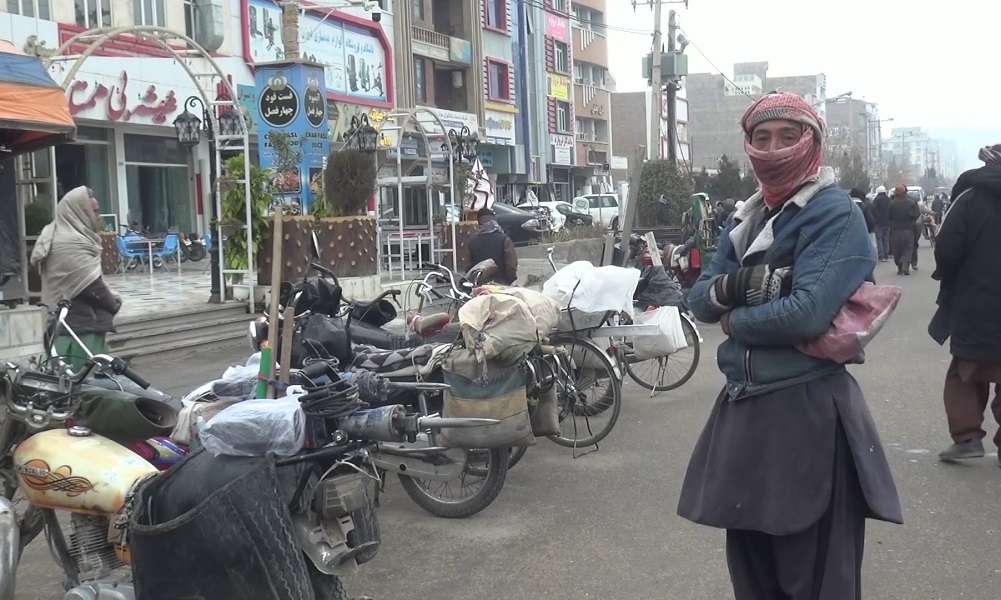Latest News
Former senior US official admits to planning attempted foreign coups

John Bolton, a former U.S. ambassador to the United Nations and former White House national security adviser, said on Tuesday that he had helped plan attempted coups in foreign countries.
Bolton made the remarks to CNN after the day's congressional hearing into the January 6, 2021, attack on the U.S. Capitol. The panel's lawmakers on Tuesday accused former President Donald Trump of inciting the violence in a last-ditch bid to remain in power after losing the 2020 election, VOA reported.
Speaking to CNN, however, Bolton suggested Trump was not competent enough to pull off a "carefully planned coup d'état," later adding: "As somebody who has helped plan coups d'état — not here but you know [in] other places — it takes a lot of work. And that's not what he [Trump] did."
In 2019, Bolton as national security adviser publicly supported Venezuelan opposition leader Juan Guaido's call for the military to back his effort to oust socialist President Nicolas Maduro, arguing that Maduro's re-election was illegitimate. Ultimately Maduro remained in power, VOA reported.
"I feel like there's other stuff you're not telling me [beyond Venezuela]," the CNN anchor said, prompting a reply from Bolton: "I'm sure there is."
Many foreign policy experts have over the years criticized Washington's history of interventions in other countries, from its role in the 1953 overthrowing of then Iranian nationalist prime minister Mohammad Mosaddegh and the Vietnam war, to its invasions of Iraq and Afghanistan this century, VOA reported.
But it is highly unusual for U.S. officials to openly acknowledge their role in stoking unrest in foreign countries.
"John Bolton, who's served in highest positions in the U.S. government, including UN ambassador, casually boasting about he's helped plan coups in other countries," Dickens Olewe, a BBC journalist from Kenya, wrote on Twitter.
Latest News
Recent attack on Afghanistan was a justified response to Pakistan’s foes: Sharif

Pakistan's Prime Minister, Shehbaz Sharif, recently stated that the military strike on the Barmal district of Paktika province in Afghanistan was an appropriate response to the armed opposition confronting Islamabad.
In a meeting in Islamabad, Sharif warned that Pakistan has, and will continue to deliver a strong and decisive response to cross-border attacks. He emphasized that both internal and external forces are actively working against Pakistan's stability.
"Today, we are addressing the attack on Pakistan that occurred in recent days, and we responded appropriately," Sharif said. "There are still operatives and fighters in Pakistan, particularly in Khyber Pakhtunkhwa and Balochistan, who are plotting against us. We are aware that some who are sitting abroad, posing as friends, are in fact working against Pakistan, which is a serious threat."
However, Pakistani media have reported that the Prime Minister's remarks refer to the influence of the Tehrik-i-Taliban Pakistan (TTP), which operates from Afghan soil and has faced resistance from Pakistani forces. While Pakistani authorities have described the operation as a defensive measure, local sources and Afghanistan's Ministry of National Defense said that the Pakistani airstrike on Barmal district led to civilian casualties, including women and children.
In response to Sharif’s comments, Sher Mohammad Abbas Stanikzai, the Deputy Foreign Minister for Political Affairs, stated that Pakistan's issues are internal and that if Islamabad pursues a path of hostility with Afghanistan, it will ultimately face failure.
Stanikzai also issued a warning, asserting: "If Afghanistan were to send the 'five sons of Mahmud, Abdali, or Babur' across the border, no one—not even in the Indian Ocean—could stop them." He further emphasized that Afghan forces have successfully safeguarded the nation’s borders, adding, "If the enemy has looked at it with an evil eye, they have plucked out their eye."
Experts, however, believe there are contradictions in the views and positions of various Pakistani institutions and officials regarding Afghanistan. While Sharif speaks of military confrontation, Pakistan's Ministry of Foreign Affairs has consistently advocated for diplomacy and expressed a desire for peaceful, friendly relations with Afghanistan.
Latest News
Unemployment rate rising in Herat

Despite hundreds of small and large factories operating in Herat, unemployment rate is rising in the western Afghan province.
Many laborers wait for work from morning till evening in every corner of the city, with some saying that they cannot find work even in a week.
Life has become difficult for the laborers during the cold winter. They cannot meet their basic living expenses.
Sayed Mahdi was deported from Iran a month ago. He is now looking for work every day. His family is in Iran and he himself spends difficult nights and days in Herat. Like Sayed Mahdi, dozens of other young people wait to find work every day.
“I came to live in my country. But what hope do I have to live with? Should I go and sleep in a mosque? In this cold season, there is no work,” he said.
Mohammad Ali, a laborer, says: “I was deported and I have no proper place to live in. My family is there. My four children are there. They deported me. There are people here whose conditions are much worse than mine.”
Some laborers say that unemployment has increased compared to last year and now they are going through a difficult situation in this cold weather. They say that they cannot afford to pay for their basic living expenses and this situation is bothering them.
“I have not been able to work for two or three weeks. There is unemployment. There are two or three thousand workers here, but there is no work,” says Ahmad Shah, a laborer.
Ghulam Rasool, another laborer, says: “When we go home empty-handed, our child gets upset. But we have no choice. My child has expectations. My wife has expectations.”
Aziz Ahmad waits for work with his tools in another corner of Herat city. He says that job opportunities have decreased greatly, cost of living is high, and there is no work to meet his basic living expenses.
He says: “I stand here from morning to evening, but there's no work."
Local officials have repeatedly said that thousands of people work in the Herat Industrial Park and that efforts are being made to reduce unemployment by launching mining projects.
Latest News
Stanikzai says Afghanistan has fighters who can act like ‘atomic bomb’

In an apparent warning to Pakistan, Deputy Foreign Minister for Political Affairs Sher Mohammad Abbas Stanikzai said on Saturday that Afghanistan has fighters who can act like “atomic bomb.”
"Today is not the day to work with Kalashnikov. Today, you will not work with M4. Today, you will have fast planes and drones. You will have weapons that the world will fear you,” Stanikzai said addressing a graduation ceremony in Kabul’s Loya Jirga hall. “Neighboring countries are proud of their weapons and claim that the Emirate is nothing in front of them. But we tell them that if you have named your rocket Ahmad and Mahmud, Ahmad and Mahmud themselves are here with us. If you have named your rocket Ghaznavi, Babur or Abdali, my country is full of Abdalis, Mahmuds and Abdalis. Each of them is an atomic bomb.”
Stanikzai warned that if Afghanistan sends “five sons of Mahmud, Abdali or Babur across the border, no one could stop them not even in the Indian Ocean.”
The official said that Afghan forces have successfully protected the country’s borders. "If the enemy has looked at it with an evil eye, they have plucked out their eye."
The remarks come as Pakistan carried out airstrikes in Afghanistan’s Paktika province last month, killing dozens of people. Afghanistan retaliated targeting multiple points in Pakistan.
In his speech, Stanikzai also stressed on the importance of making Afghanistan’s economy self-reliant.
"Any country that is poor is a slave. This is a principle in the world. A hungry and poor person accepts the orders of the rich, and if he does not accept their orders, no one will give him bread. Today, if foreign countries and organizations set conditions in Afghanistan, it is because we are dependent on them. If we were economically self-reliant, we would tell everyone that we will not accept any of your conditions and you should not interfere, but unfortunately, we are dependent for even a sack of flour,” he said.
-

 Latest News5 days ago
Latest News5 days agoSouth Korea pledges $5 million to support vulnerable families in Afghanistan
-

 World5 days ago
World5 days agoUS announces $5.9 billion in military and budget aid to Ukraine
-

 Latest News3 days ago
Latest News3 days agoMinistry: $1 billion invested in Afghanistan’s poultry production sector
-

 Regional4 days ago
Regional4 days agoU.N. body accuses Israel of destroying Gaza healthcare
-

 Latest News5 days ago
Latest News5 days agoShah wa Arus dam inaugurated in Kabul
-

 Latest News3 days ago
Latest News3 days agoDeclining water levels affect 50 percent of fish farms in Kandahar
-

 Regional5 days ago
Regional5 days agoIran confirms arrest of Italian journalist Cecilia Sala
-

 Latest News3 days ago
Latest News3 days agoSalt refinery plant to be built in Takhar province
























